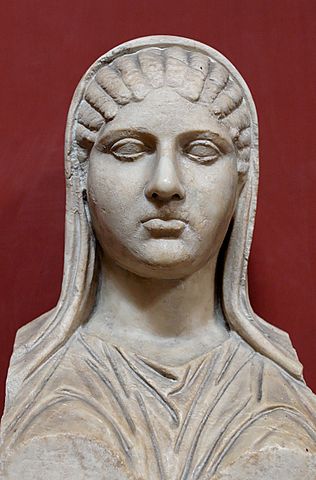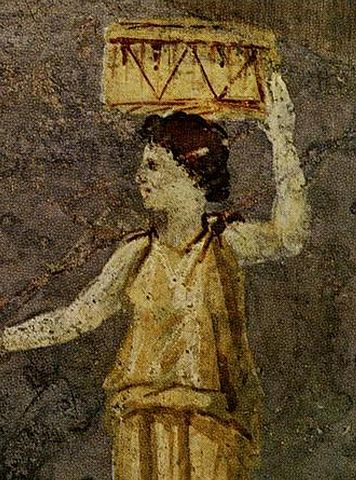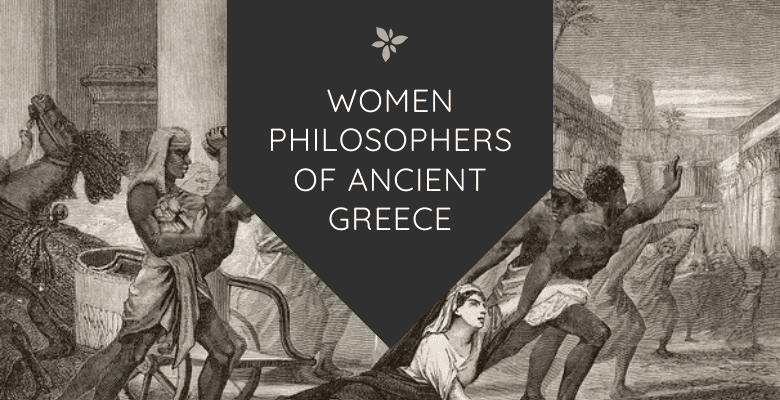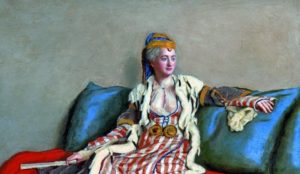Were there female philosophers in Ancient Greece? Men have never had a monopoly on philosophy – there have always been women philosophers, even back in Ancient Greece. But it definitely wasn’t easy for them.
While the Ancient Greeks were advanced in so many ways, the prospects for Ancient Greek women were extremely limited. Women in Ancient Greek society were viewed as inferior in every way, and in most cases confined to the home where their responsibilities were running the house and bearing children. Women had no legal personhood and were not allowed to do much of anything without their husband’s permission.
Aristotle himself said “as regards the sexes, the male is by nature superior and the female inferior, the male ruler and the female subject.” Professor of Philosophy Cynthia Freeland wrote in “Nourishing Speculation: A Feminist Reading of Aristotelian Science”:
Aristotle says […] that a female is an incomplete male or ‘as it were, a deformity’.”
This view of women as not-quite-human had a huge influence on the development of western society.
The ancient female philosophers listed below, however, defied the conventions of society to pursue knowledge, and became famous for centuries and millennia after their deaths for the contributions they made to philosophy.
1. Arete of Cyrene, Hedonist Philosopher
Arete of Cyrene (4th-3rd century BCE) was taught by her father, the philosopher Aristippus of Cyrene, who had been a student of Socrates.
Arete was a follower of Cyrenaic philosophy, a school of hedonistic philosophy founded by her father which taught that the only intrinsic good is pleasure. She studied at Plato’s academy in Athens, and went on to teach natural and moral philosophy to over one hundred students in the schools of Attica and Athens.
Although she wrote about 40 books on philosophy education and natural science, the content of her works has not survived to this day. Her epitaph said she had “the grandness of Greece, the beauty of Helen, the pen of Aristippus, the soul of Socrates, and the language of Homer.”
2. Themistoclea, Teacher of Pythagoras
Also called Aristoclea or Theoclea, Themistoclea (6th century BCE) was a priestess at Delphi. She was one of the teachers of the famous Greek philosopher and mathematician Pythagoras, who claimed to have learned all his moral doctrines from her.
Unfortunately, not much information about her has survived.
3. Aspasia, Famous Female Philosopher

Though Aspasia is mentioned in the writings of philosophers Plato, Aristophanes, Xenophon, and others, very little is known about her life. Some scholars suggest she came from a wealthy educated family, while others say she was a brothel keeper.
She may have been a hetaera, a high-class Greek courtesan that was free from many restrictions most Greek women were under. As a hetaera she would have been free to participate in public life instead of being confined to the home.
Aspasia was famous in Ancient Greece for her ability as a conversationalist and adviser. Her house in Athens became an intellectual center that attracted many great thinkers and philosophers, including Socrates, who may have been influenced by her teachings, and Plato, who was impressed by her intelligence and wit.
The Greek historian Plutarch said of her: “she managed as she pleased the foremost men of the state, and afforded the philosophers occasion to discuss her in exalted terms and at great length.”
4. Hipparchia the Cynic

Hipparchia (4th century BCE) was born in Maroneia, but on a trip to Athens she fell in love with the philosopher Crates, and married him without her parents’ approval. Crates was a Cynic philosopher who believed that purpose and virtue could only be found in a simple life free from possessions, and without desire for power, wealth, or fame.
Hipparchia joined Crates in his life of Cynic poverty, donning male clothing and living in equality with her husband. Their way of life shocked Ancient Greek society, and Hipparchia became famous for her rejection of conventional values and expectations of women.
She wrote several philosophical treatises, though none of them have survived to this day.
However, her works were famous in her time, and she was the only woman among 82 philosophers to have her own entry in Diogenes Laertius’ “Lives and Opinions of Eminent Philosophers” written in the following century.
5. Leontion, Epicurean Philosopher
Leontion (4th century BCE), a Greek Epicurean philosopher, was a student of Epicurus, who was unusual in allowing women philosophers and slaves to attend his school.
Though not much information is available about her, she was praised by Epicurus for her well-written arguments against other philosophical views, and was mentioned by other philosophers including Pliny.
In her lifetime she became well-known for publishing several arguments against the famous philosopher Theophrastus.
6. Hypatia of Alexandria
Hypatia (370-415 CE) was a Alexandrine Neoplatonist philosopher and the first well-documented woman in mathematics. Today she is the most famous of ancient women philosophers, lending her name to an asteroid belt, a lunar crater, a genus of moth, and dozens of fictional characters in literature.
Hypatia was the head of the Platonist school at Alexandria, where she taught astronomy and the philosophy of Plato and Aristotle. Her students included pagans, Christians, and foreigners, many of whom traveled from far away to seek her instruction. Contemporaries said she “far surpassed all the philosophers of her own time.”
Hypatia was famously murdered by a Christian mob, and some scholars say her murder marked the end of Classical antiquity and the downfall of Alexandrian intellectual life.
Read more about Hypatia of Alexandria.
These women are just a few of the ancient Greek female philosophers, who contributed so much to the development of philosophy, science, and math. The works and names of many more have been lost in the passing centuries, passed over to focus on the accomplishments of men.
Next, read about Charlotte Perkins Gilman, Feminist Writer, Lecturer, and Thinker, or Melanie Klein, the Founding Mother of Children’s Psychology!
Keri is a blogger and digital marketing professional who founded Amazing Women In History in 2011.






I have difficulty finding a book of sorts about any of these philosphers. I Am very curious to find out more about (one of) them. If you have any suggestions, please let me know.
These women did not defy the conventions of their time. They became philosophers within them. Arete was taught by her father and later taught her son, a thing many other ancient Greek women did. Themistoclea was a priestess of Delphi, she was expected to be wise, men visited the Oracle of Delphi to get advice even in times of war. Aspasia was a hetera, most heterai were educated and independant, Hipparchia joined the Cynics who did not believe in societal norms at all and Leontion was an Epicurean, Epicurus accepted everyone in his commune.
Ancient Greek society was not only Aristotle and his opinions. Not only Athens and its laws.
It’s such a shame that so many of these women’s written works haven’t survived to this day.
I would have especially wished I could read the works of Hyparchia the Cynic and Arete of Cyrene.
But I guess it’s up to present and future generations of women to write our own works and pass them down.
It’s so unfortunate that most of these women’s written works have not survived to this day. I would have especially liked to read the works of Hipparchia the Cynic and Arete of Cyrene.
Our current generation of women has the power to write our own. We have to find a way to keep it preserved and passed down to future generations. Women must unite and form our own communities and schools, and spaces of female excellence. We have to preserve our own history. There is no way that men will do it for us. Does this resonate with anyone else here?
Either way I’m so glad I found this article.
great piece! once heard about phintys of sparta, unfortunately there is no much literature about her outhere .Can you drop something on her please.